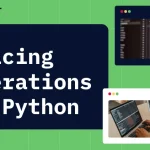Professional cybersecurity training programs have become essential stepping stones for ambitious tech professionals seeking career advancement in information security.
Security credentials now serve as gatekeepers to lucrative cyber defense roles, with employers prioritising certified candidates over traditional IT backgrounds.
Modern cybersecurity education encompasses everything from network security training to advanced threat detection methodologies.
This comprehensive analysis examines premier cybersecurity certifications, helping you identify the optimal certification pathway for your information assurance career goals and professional development objectives.
Why Cybersecurity Certification Matters in 2025
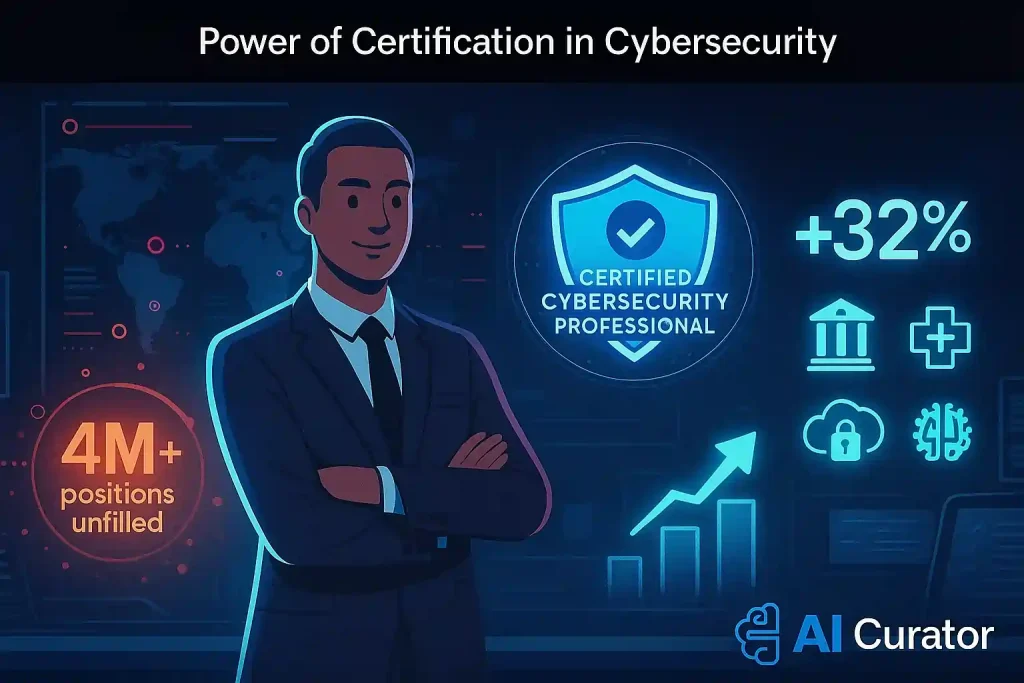
The global cybersecurity skills gap has reached 4 million unfilled positions, creating unprecedented opportunities for certified professionals. Cyber attacks cost UK businesses £21 billion annually, driving employers to prioritise candidates with verified security expertise over traditional IT backgrounds.
Professional certifications demonstrate measurable competency in threat detection, incident response, and risk assessment—skills that generic computer science degrees cannot validate. Certified cybersecurity professionals command 32% higher starting salaries compared to non-certified peers, with faster promotion cycles and enhanced job security.
Industry certifications serve as universal credentials, recognised across sectors from banking to healthcare, enabling career mobility and specialisation opportunities in emerging areas like cloud security and AI threat protection.
Cybersecurity Certifications Comparison: Key Differences and Selection Guide
| Certification | Experience Required | Cost Level | Official Pricing |
|---|---|---|---|
| Harvard VPAL Cybersecurity: Managing Risk in the Information Age | None | Premium | $3045.00 |
| Northwestern Cybersecurity Leadership | Preferred | High | Not publicly disclosed |
| IBM Cybersecurity Analyst Professional Certificate | None | Moderate | $49/month (Coursera subscription) |
| Certified Cloud Security Professional (CCSP) – (ISC)² | 5yrs IT + Cloud Exp | Moderate | $599 (ISC² members) / $798 (non-members) |
| Certified Ethical Hacker (CEH) – EC-Council | 2 years preferred | Moderate | $950–$1,199 (exam + training) |
| Certified Information Systems Security Professional (CISSP) – (ISC)² | 5 years required | High | $749 exam + ~$1,000 prep courses |
| GIAC Security Essentials (GSEC) – SANS Institute | None | High | $949 exam fee + training costs |
| Google Cybersecurity Professional Certificate | None | Low | $189 total certificate fee |
1. Harvard VPAL Cybersecurity: Managing Risk in the Information Age
Program Details
Duration: 8 weeks
Format: Online self-paced
Cost: Premium pricing (varies by provider)
Harvard's prestigious cybersecurity course stands as the gold standard for executive-level cyber risk management education. Led by industry experts, this programme transforms participants into strategic cybersecurity leaders capable of protecting organisational assets at the highest level.
The curriculum focuses on real-world applications, teaching participants to conduct comprehensive vulnerability assessments and develop enterprise-wide security strategies. Students learn to navigate complex regulatory environments whilst building robust incident response frameworks that protect against operational, litigation, and reputational risks.
Key Learning Outcomes
2. Northwestern Cybersecurity Leadership
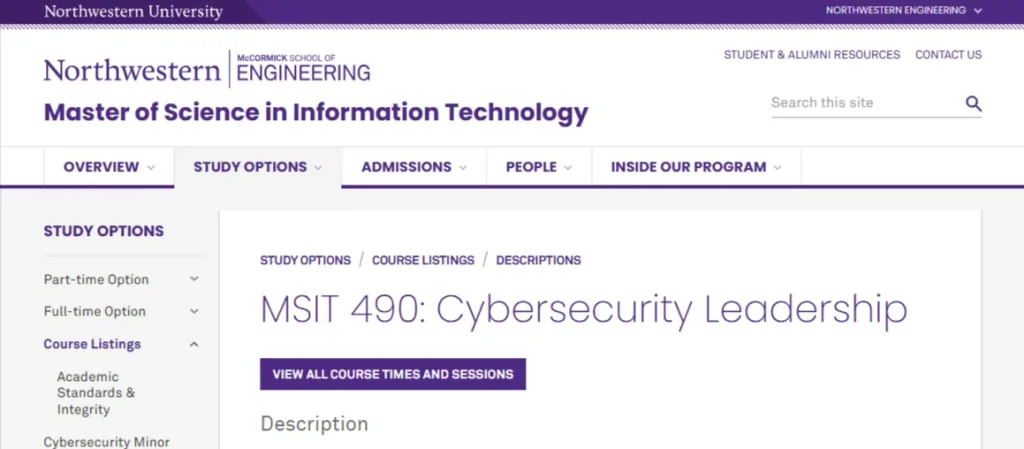
Program Details
Duration: 6 weeks
Format: Online flexible learning
Study Time: 9 hours per week maximum
Northwestern's cybersecurity leadership course addresses the critical skills gap in cybersecurity management. The programme transforms technical professionals into strategic leaders who can build and manage enterprise security programmes.
Taught by industry veterans with Fortune 500 experience, this course covers advanced leadership competencies including workforce development, regulatory compliance, and executive communication. Students learn to establish robust information security infrastructure whilst navigating complex ethical and legal challenges.
Core Competencies Developed
3. IBM Cybersecurity Analyst Professional Certificate
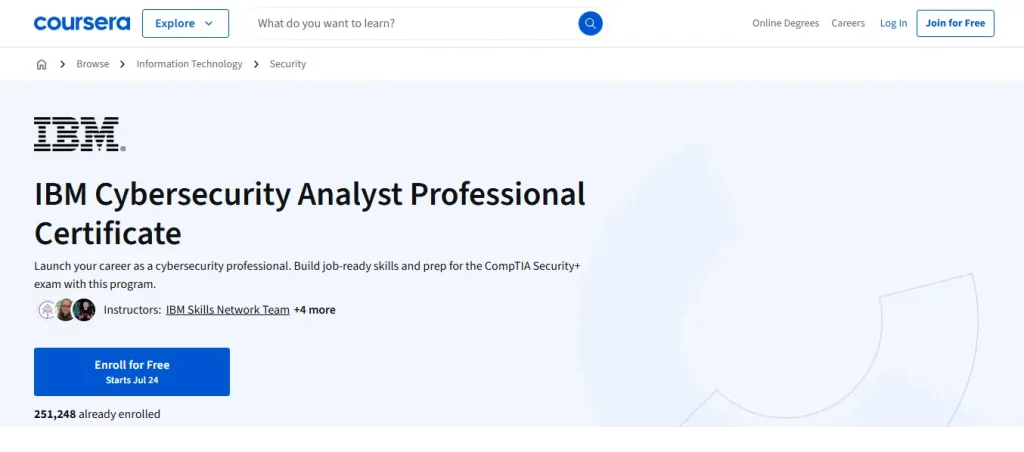
Program Details
Duration: 8 courses (approximately 6 months)
Format: Online hands-on learning
Study Hours: 171 learning hours total
IBM's comprehensive programme prepares students for immediate entry into cybersecurity roles. The curriculum combines theoretical knowledge with practical, hands-on experience using industry-standard tools and technologies.
Students work through real-world security breach scenarios, learning to identify attacks, assess vulnerabilities, and recommend prevention strategies. The programme includes extensive training in penetration testing, incident response, digital forensics, and threat intelligence.
Technical Skills Covered
4. Certified Cloud Security Professional (CCSP) – (ISC)²
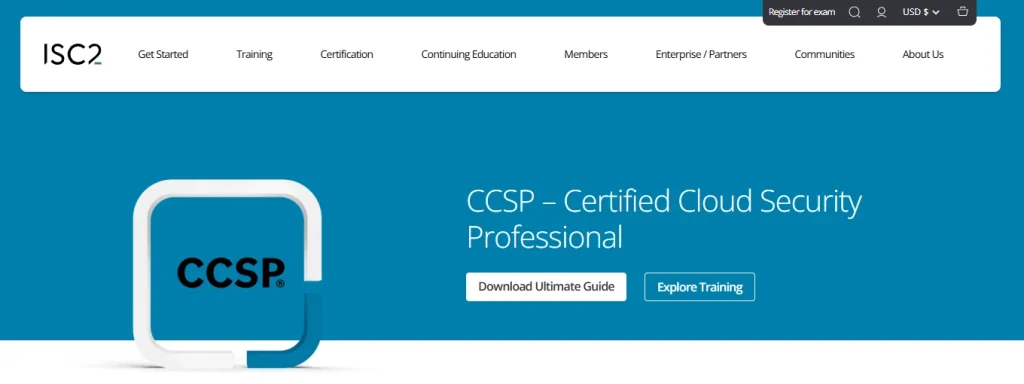
Program Details
Duration: Self-paced preparation
Format: 125 multiple-choice questions (3 hours)
The CCSP certification represents the gold standard for cloud security expertise, jointly developed by (ISC)² and the Cloud Security Alliance (CSA). This globally recognised credential validates advanced technical skills in designing, managing, and securing data, applications, and infrastructure across cloud environments.
The certification covers six comprehensive domains spanning cloud architecture, data security, platform protection, application security, operations, and legal compliance. Updated in August 2024, the exam now features a streamlined format with 125 questions delivered over three hours, maintaining rigorous standards whilst improving efficiency.
Six Core Domains
5. Certified Ethical Hacker (CEH) – EC-Council
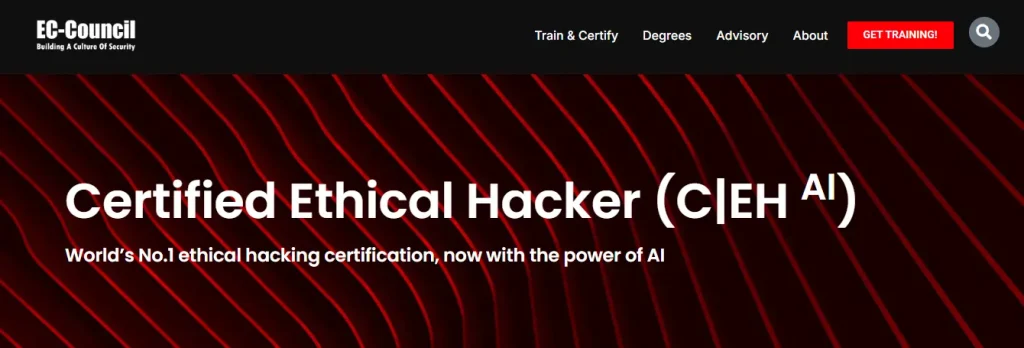
Program Details
Duration: Self-paced preparation
Exam: 125 multiple-choice questions (4 hours)
The CEH certification has maintained its position as the world's leading ethical hacking qualification for over 20 years. This globally recognised credential validates professionals' ability to think like malicious hackers whilst maintaining ethical standards.
The programme covers 20 comprehensive modules, from footprinting and reconnaissance to advanced persistent threats and IoT security. Students master the same tools and techniques used by cybercriminals, enabling them to identify vulnerabilities before malicious actors exploit them.
Career Applications
6. Certified Information Systems Security Professional (CISSP) – (ISC)²
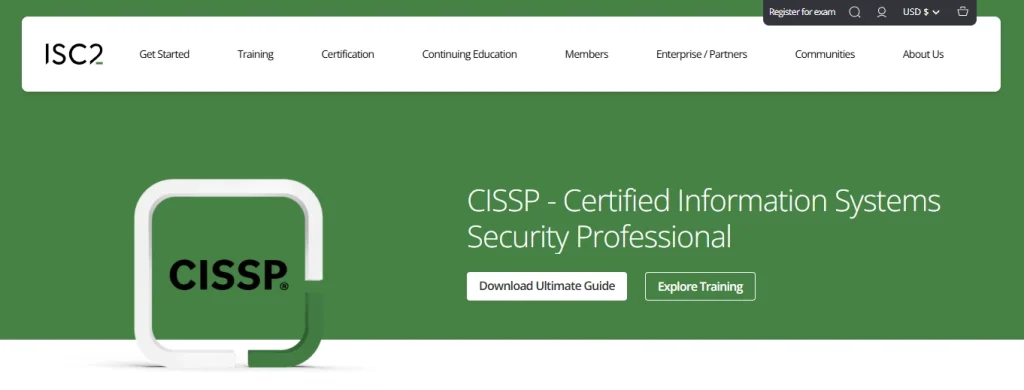
Program Details
Duration: Self-paced preparation
Exam: 100-150 adaptive questions (3 hours)
CISSP represents the gold standard in cybersecurity leadership certification. With over 156,000 certified professionals worldwide, this credential demonstrates mastery of the eight essential security domains that define modern cybersecurity practice.
The certification requires significant professional experience, making it ideal for seasoned professionals seeking executive-level positions. CISSP holders typically advance to senior management roles, including CISO, security director, and chief risk officer positions.
Eight Core Domains
7. GIAC Security Essentials (GSEC) – SANS Institute
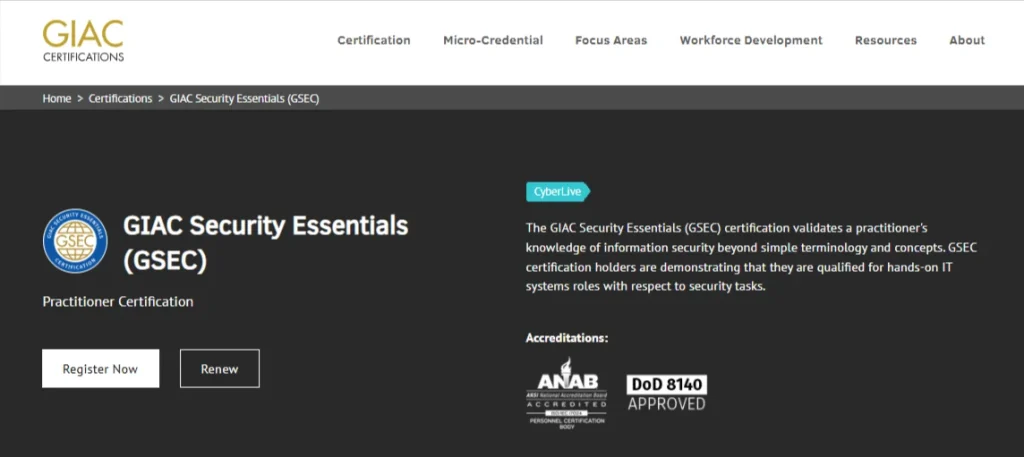
Program Details
Duration: Self-paced preparation
Format: Hands-on practical training
Focus: Technical cybersecurity fundamentals
GSEC certification validates comprehensive technical knowledge across six critical cybersecurity domains. This entry-level certification from GIAC provides the foundation for advanced cybersecurity specialisations whilst demonstrating practical security skills.
The programme emphasises hands-on learning through real-world scenarios and practical exercises. Students develop expertise in network security, vulnerability management, and incident response whilst building competency in Windows, Linux, and cloud security technologies.
Six Core Domains
8. Google Cybersecurity Professional Certificate
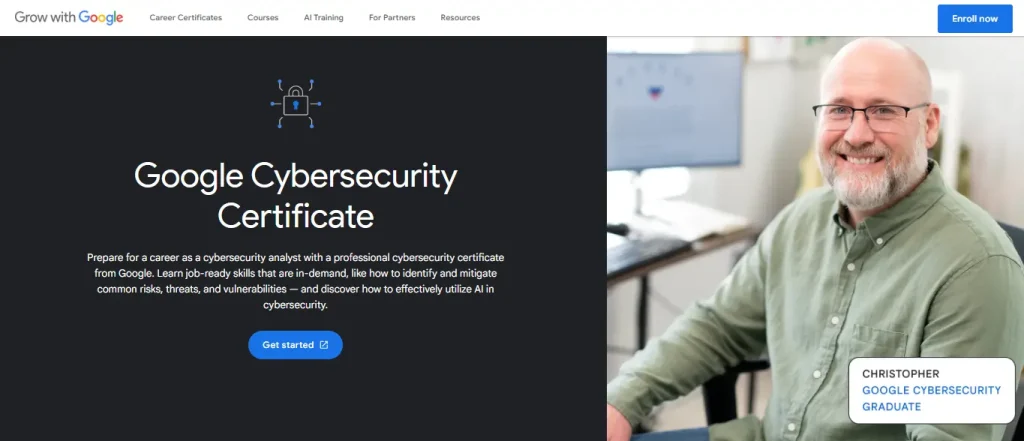
Program Details
Duration: 3-6 months
Format: Online hands-on learning
Study Hours: 171 learning hours total
Google's cybersecurity certificate provides comprehensive entry-level training recognised by leading employers. The programme covers essential cybersecurity concepts through eight structured courses, combining theoretical knowledge with practical, hands-on experience.
Students gain proficiency in beginner-level Python programming, Linux system administration, and SQL database management. The curriculum includes extensive training in Security Information and Event Management (SIEM) tools and Intrusion Detection Systems (IDS).
Technical Proficiencies Developed
Choosing Your Cybersecurity Certification Path

The cybersecurity field offers exceptional growth potential, with specialists earning average salaries of £75,000-£150,000 annually in the UK market. Advanced certifications like CISSP and CEH command premium compensation, often exceeding £200,000 for senior roles.
Investment in cybersecurity education pays dividends rapidly, with most professionals recovering certification costs within 6-12 months through salary increases and advancement opportunities.
Choose the certification that aligns with your career trajectory and begin your journey into one of technology's most rewarding fields.











